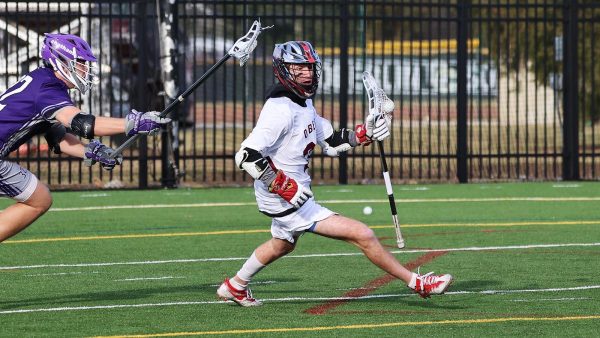Schiano’s Mediocrity an Unacknowledged Motive of Protests
Editor’s note: This article contains mentions of sexual abuse.
Greg Schiano, the current defensive line coach of the Ohio State Buckeyes, signed a memorandum to become the new Head Coach of the University of Tennessee Volunteers last Sunday morning. By that evening, he was out. The rapid reversal was undoubtedly a reaction to the massive student protests that ensued on the campus after word spread about Schiano’s new role — protests that insisted that the University of Tennessee had just hired a bystander to sexual assault.
Schiano was the defensive line coach of Penn State’s football team for six seasons, from 1990–1995, where he worked under the direct supervision of Jerry Sandusky, the assistant coach who was convicted for more than 52 accounts of sexual abuse of young boys between 1994 and 2009. In a 2015 deposition, former Penn State Assistant Football Coach Mike McQueary stated that he “saw Sandusky doing something to a boy in the shower,” but a follow up investigation never ensued.
In an age of widespread student protests on college campuses, the University of Tennessee students managed to shut down this immoral deal in less than a day. Students swarmed the campus main square loudly protesting and circulating urgent petitions. One student spray-painted the campus’s landmark rock with the message, “Schiano Covered Up Child Rape at Penn State.” The campaign even managed to spread beyond the parameters of the university, eliciting statements from politicians and state officials.
“The Head Football Coach at the University of Tennessee is the highest paid state employee … and we don’t need a man who has that type of potential reproach in their life,” tweeted Tennessee State Representative Jeremy Faison.
Passivity in the wake of sexual assault is a deplorable action. However, it may not be the only motive behind the student protests at the University of Tennessee. Schiano’s track record as a coach shows he was mediocre at best, leaving his head coach role at Rutgers University after 11 years with a 68–67 record and serving as the head coach of the Tampa Bay Buccaneers for only two years before departing the organization with an 11–21 overall record. Additionally, he was reported to coach with an aggressive and bellicose style, disliked by many of his players. While the accusation posed against Schiano for his time in Penn State should by no means be overlooked, it was never wholly investigated and is founded mostly on hearsay, lacking substantial evidence to truly prove Schiano acted passively in the wake of sexual assault.
It is also worth noting that the University of Tennessee just completed its worst college football season in history, so it’s no surprise that its faithful fans are looking for a coach that can ensure a successful future for the Volunteers. Based on his coaching history, fans see Schiano as a doubtful choice to reverse the team’s suffering streak.
Some of the student protesters are certainly involved because they care deeply about punishing assaulters and bystanders of assault. And with accounts of sexual harassment in the mainstream world increasing daily, an attempt to sympathize with or defend an accused party feels more inappropriate than ever before. But those applauding the students at the University of Tennessee for taking a stand against sexual assault would be wrong to assume that it was the sole motive of the protest, as the uncomfortable truth is that this campaign was a good opportunity for students to find a fast and forceful way to help Tennessee play good football again.
After the decision to not hire Schiano was finalized Sunday night, State Representative Jason Zachary tweeted in affirmation of the University for its decision. “Thank you to our community for stepping up and standing for our traditional, common sense TN values,” the tweet read. But whether those “Tennessee Values” refer to taking a stand against a societal epidemic or just winning more football games is up to the individual to decide.






